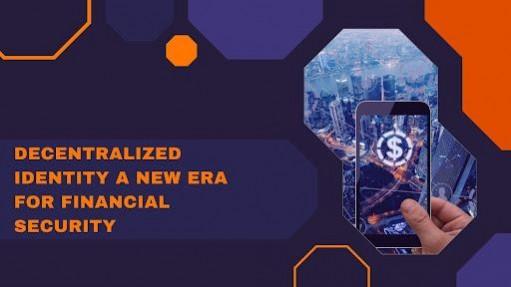
In the evolving landscape of financial technology, innovations that improve security, efficiency, and regulatory compliance are crucial. Iswarya Konasani, an expert in blockchain and financial security, presents a compelling case for decentralized identity solutions in Know Your Customer (KYC) and Anti-Money Laundering (AML) processes. These technologies are not only reducing fraud but also improving user trust and financial inclusion. This article explores how these advancements are reshaping financial services.
The Limitations of Traditional KYC Systems
Financial institutions have long relied on centralized identity verification systems for KYC and AML compliance. However, these systems come with challenges, including high operational costs, prolonged verification times, and vulnerability to cyber threats. Onboarding a new client can take weeks due to extensive documentation requirements and manual verification steps. Additionally, centralized databases are attractive targets for cybercriminals, leading to significant breaches of sensitive customer information.
The Rise of Decentralized Identity Solutions
Decentralized identity solutions leverage blockchain technology to address inefficiencies in traditional KYC systems. By shifting control of identity verification to a distributed ledger, these systems offer a secure, efficient, and tamper-proof method of authentication. Unlike conventional databases, blockchain ensures that identity credentials are encrypted and shared only with authorized parties, reducing the risk of data breaches and identity fraud.
Enhancing Security and Compliance
Decentralized identity systems enhance security while ensuring regulatory compliance. Blockchain-based identity verification creates immutable audit trails, making it easier for financial institutions to demonstrate compliance. Advanced cryptographic techniques, such as zero-knowledge proofs, allow customers to verify identities without exposing sensitive personal data, strengthening privacy protections.
Operational Efficiency and Cost Reduction
The implementation of decentralized identity solutions has shown remarkable improvements in efficiency. Financial institutions using blockchain-based KYC systems report reduced onboarding times and lower operational costs. Automated verification processes streamline identity authentication, reducing the need for manual intervention. This efficiency not only lowers costs but also enhances the customer experience.
A Shift Towards Self-Sovereign Identity
Self-Sovereign Identity (SSI) allows individuals to control their personal data, granting access to specific entities only when necessary. This user-centric approach eliminates redundant submissions to multiple financial institutions, reducing data exposure risks. Financial institutions using SSI models have seen improved compliance scores and a significant reduction in identity-related disputes.
The Role of Smart Contracts in Identity Verification
Smart contracts enhance decentralized identity solutions by automatically enforcing compliance rules and verifying credentials without human intervention. By leveraging smart contracts, financial institutions can complete KYC verification faster than traditional systems. Data shows that smart contracts significantly improve efficiency and reduce verification errors substantially.
Addressing Adoption Challenges
Despite benefits, widespread adoption faces challenges such as regulatory uncertainty and interoperability concerns. However, advancements in standardized frameworks and increased regulatory clarity are paving the way for broader implementation. Studies indicate that many financial institutions plan to integrate decentralized identity solutions within the next two years, ensuring greater security and operational efficiency.
The Future of Financial Identity Management
As the financial industry embraces digital transformation, decentralized identity solutions are poised to become a cornerstone of modern identity verification. Market projections suggest significant investments in this technology, with institutions reporting cost savings and security enhancements. Adoption of decentralized identity strengthens compliance and improves customer trust. Additionally, its integration with artificial intelligence is expected to further streamline verification processes and fraud detection.
In conclusion, the transition to decentralized identity solutions represents a shift in financial institutions' approach to KYC and AML compliance. By leveraging blockchain technology, these systems enhance security, efficiency, and user control over personal data. As adoption rates rise, the financial sector is set to benefit from a more resilient and cost-effective verification framework. Iswarya Konasani's insights highlight the importance of embracing this innovation to ensure a safer financial ecosystem.
















